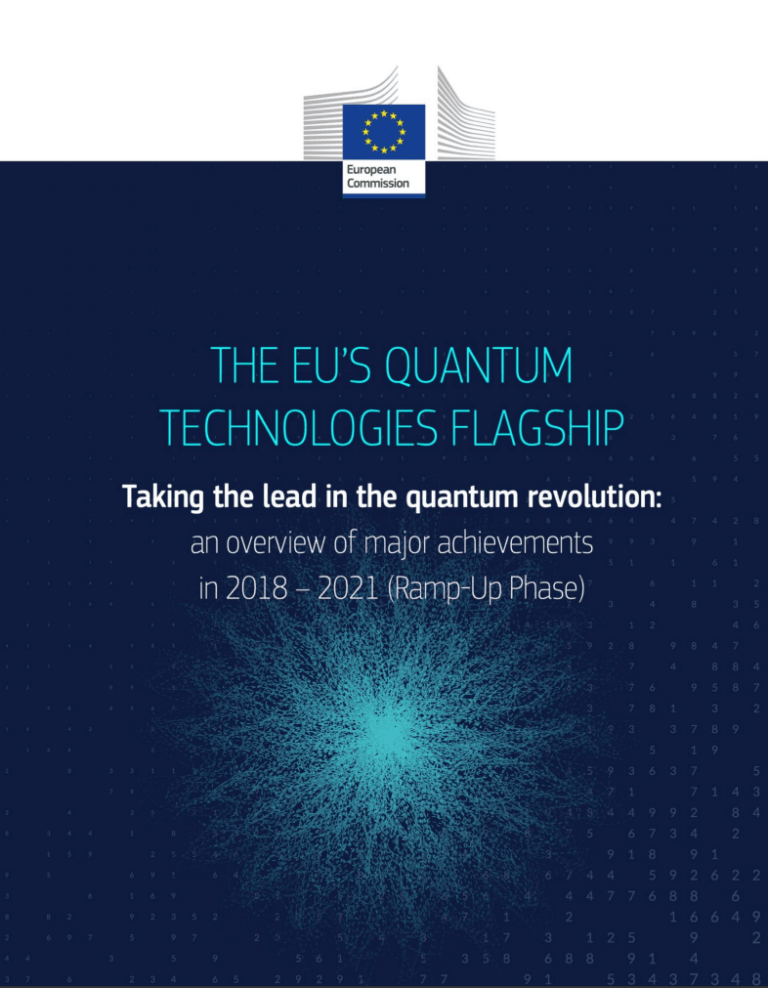In autumn 2018, the European Commission launched the Quantum Technologies Flagship, a 10-year initiative with an expected budget of EUR 1 billion. The Flagship is a long-term collaborative initiative that represents a major milestone for quantum technologies in Europe. It is fundamental for European efforts to compete globally in a field of great strategic importance; the Flagship will enable Europe to stay ahead in the second quantum revolution and facilitate the transformation of its economy and society.
The Flagship brings together 236 organisations and over 1500 scientists. The organisations include 77 privately owned companies, 103 universities, and 56 research organisations, kick-starting a competitive European quantum industry. The Flagship is shaped by its Strategic Research Agenda (SRA) and supervised by the Strategic Advisory Board (SAB)1, which has set out goals for the Flagship9s 10-year lifetime. During its ramp-up phase (2018-2021), the Flagship received EU funding of EUR 193 million under Horizon 2020. This phase included 19 R&D projects that started in late 2018 and ended in early 2022, along with two additional projects that started in late 2020 and will end in 2024.
The present report marks the conclusion of the Flagship9s ramp-up phase, and the review of these 21 projects in the fields of quantum communication, quantum computing, quantum simulation, quantum sensing and metrology, and basic quantum science, led by independent experts from academia and industry, that was carried out at this point in its lifetime. Their most notable achievements include:
- quantum communication: developed a comprehensive guide to reaching the Flagship9s ultimate goal of a quantum internet, and successfully passed the first step: connecting two quantum processors through an intermediate node and establishing shared entanglement between multiple stand-alone quantum processors, forming a proof-of-principle quantum network
- quantum computing: built a quantum computer system of globally competitive performance based on superconducting circuits, as well as conducted very promising work on other computing platforms such as trapped ions and silicon qubits
- quantum simulation: developed two 100-qubit analogue quantum simulators and reached practical quantum advantage in scientific problems involving the study of new materials and phases of matter (e.g. superconductivity, highly entangled systems)
- quantum sensing and metrology: developed some of the world9s most advanced quantum sensors based on nitrogen vacancy centres in ultrapure diamond and made significant advances towards improved medical imaging diagnostics and spectroscopy, and ultra-precise clocks
- basic quantum science: made significant advances towards the development of several alternative computing platforms, including photonics-based quantum computing.
In addition, the Flagship’s activities have led to the foundation of 25 spin-offs/start-ups; 105 patents have been filed, with 64 already granted, and 1313 scientific papers were published (with another 223 under review). 1961 conferences were attended, and 161 conferences/workshops organised by project researchers.

